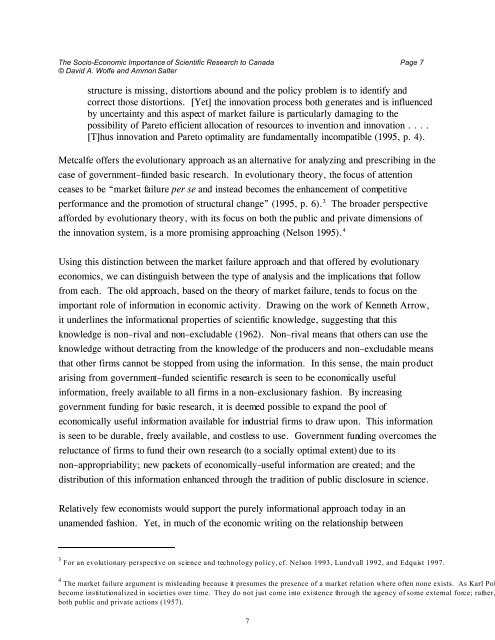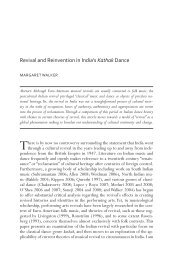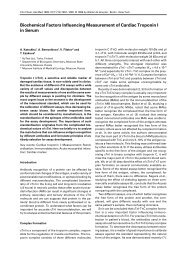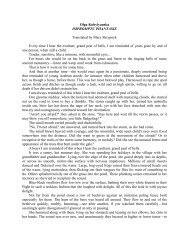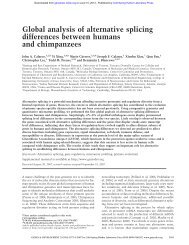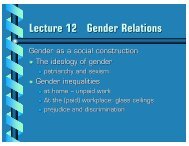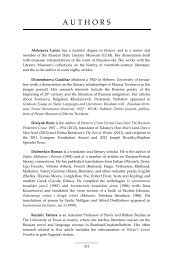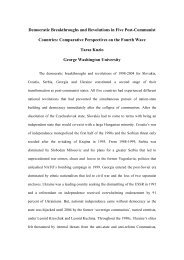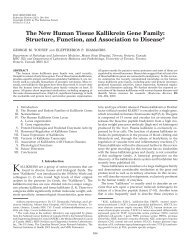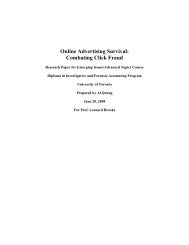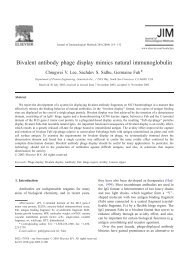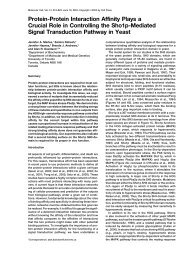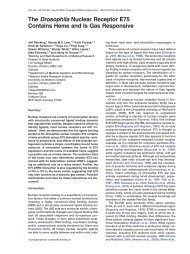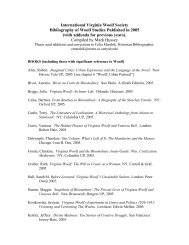The Socio-Economic Importance of Scientific Research To Canada
The Socio-Economic Importance of Scientific Research To Canada
The Socio-Economic Importance of Scientific Research To Canada
Create successful ePaper yourself
Turn your PDF publications into a flip-book with our unique Google optimized e-Paper software.
<strong>The</strong> <strong>Socio</strong>-<strong>Economic</strong> <strong>Importance</strong> <strong>of</strong> <strong>Scientific</strong> <strong>Research</strong> to <strong>Canada</strong> Page 7© David A. Wolfe and Ammon Salterstructure is missing, distortions abound and the policy problem is to identify andcorrect those distortions. [Yet] the innovation process both generates and is influencedby uncertainty and this aspect <strong>of</strong> market failure is particularly damaging to thepossibility <strong>of</strong> Pareto efficient allocation <strong>of</strong> resources to invention and innovation . . . .[T]hus innovation and Pareto optimality are fundamentally incompatible (1995, p. 4).Metcalfe <strong>of</strong>fers the evolutionary approach as an alternative for analyzing and prescribing in thecase <strong>of</strong> government–funded basic research. In evolutionary theory, the focus <strong>of</strong> attentionceases to be “market failure per se and instead becomes the enhancement <strong>of</strong> competitiveperformance and the promotion <strong>of</strong> structural change” (1995, p. 6). 3 <strong>The</strong> broader perspectiveafforded by evolutionary theory, with its focus on both the public and private dimensions <strong>of</strong>the innovation system, is a more promising approaching (Nelson 1995). 4Using this distinction between the market failure approach and that <strong>of</strong>fered by evolutionaryeconomics, we can distinguish between the type <strong>of</strong> analysis and the implications that followfrom each. <strong>The</strong> old approach, based on the theory <strong>of</strong> market failure, tends to focus on theimportant role <strong>of</strong> information in economic activity. Drawing on the work <strong>of</strong> Kenneth Arrow,it underlines the informational properties <strong>of</strong> scientific knowledge, suggesting that thisknowledge is non–rival and non–excludable (1962). Non–rival means that others can use theknowledge without detracting from the knowledge <strong>of</strong> the producers and non–excludable meansthat other firms cannot be stopped from using the information. In this sense, the main productarising from government–funded scientific research is seen to be economically usefulinformation, freely available to all firms in a non–exclusionary fashion. By increasinggovernment funding for basic research, it is deemed possible to expand the pool <strong>of</strong>economically useful information available for industrial firms to draw upon. This informationis seen to be durable, freely available, and costless to use. Government funding overcomes thereluctance <strong>of</strong> firms to fund their own research (to a socially optimal extent) due to itsnon–appropriability; new packets <strong>of</strong> economically–useful information are created; and thedistribution <strong>of</strong> this information enhanced through the tradition <strong>of</strong> public disclosure in science.Relatively few economists would support the purely informational approach today in anunamended fashion. Yet, in much <strong>of</strong> the economic writing on the relationship between3 For an evolutionary perspective on science and technology policy, cf. Nelson 1993, Lundvall 1992, and Edquist 1997.4 <strong>The</strong> market failure argument is misleading because it presumes the presence <strong>of</strong> a market relation where <strong>of</strong>ten none exists. As Karl Polbecome institutionalized in societies over time. <strong>The</strong>y do not just come into existence through the agency <strong>of</strong> some external force; rather,both public and private actions (1957).7


